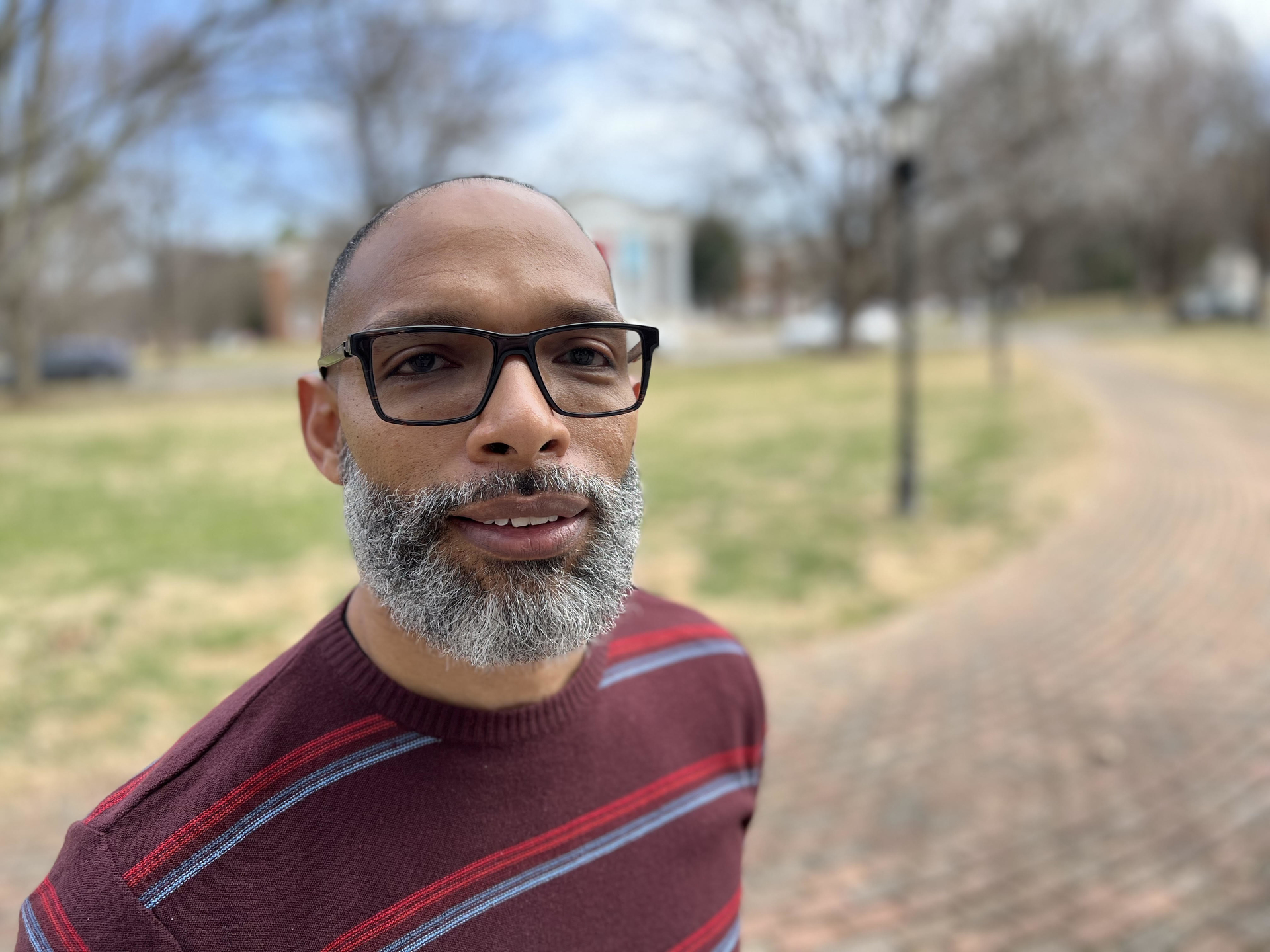
After a brief pause, Guilford's Wiser Justice Program has a new interim director, but the same mission: To help students prepare for a career after prison.
Ja'Maul Redmond had a few expectations – none of them good — the first time when he walked into the Southern Correctional Institution in Troy, N.C., to teach inmates about sustainable building practices.
By the time he left, those expectations were left in ruins. “I was completely blown away,” says Ja'Maul, a part-time instructor at Guilford and the interim leader of the College’s Wiser Justice Program. “I honestly thought maybe what I would present to them would be boring, but they were so enthusiastic and eager to learn.”
That was 12 years ago. For many incarcerated students today, Ja’Maul says that thirst for knowledge, to learn a trade and a desire and apply those skills after they’re released from prison has only grown.
That’s one reason why he’s excited that Wiser Justice, after being put on pause at Guilford for several months while the College sought new program leadership, is up and running again with Ja’Maul leading the way.
“Wiser and other programs like it are too important to the students and the larger community not to succeed,” he says.
The Wiser Justice Program brings instructors from Guilford and other higher-ed institutions to incarcerated women and men who provide courses in the fields of Business, English, Criminal Sustice, Sociology, Psychology and Conflict Resolution.
The five-semester program provides students with an opportunity to receive 30 college credits and to take a preparatory course for the Leadership in Energy and Environmental Design (LEED) certification exam. These credits are transferable to most schools that offer associate’s and bachelor’s degrees.
LEED is an internationally recognized green building certification system developed by the U.S. Green Building Council designed to reduce an existing or new building’s carbon footprint.
Ja’Maul says LEED certification is not limited to the building industry. “Certification actually helps in whatever industry that you're going into,” he says. “To have that expertise and to be the spearhead in terms of doing things in a sustainable way makes you stand out from other applicants.”
Before he started teaching with Wiser, Ja’Maul taught sustainable practices and strategies at banks and real estate companies. “It’s a skill you can take anywhere into the workforce,” he says.
Ja’Maul says the incarcerated students he works with weekly “value an education a little differently” than traditional college students. “Both know the importance, but I think when you’re in prison you become a little more aware of just how important an education is,” he says. “Every week I show up, the students have their homework done and they have so many questions for me. You have to be ready to teach as soon as you get there, because they’re ready to go. It’s inspiring, really.”
Ja’Maul says classes are not unlike those taught at traditional colleges and universities with books and notes and assignments. They’re also discussion-based, in order to break down barriers and encourage students to share and learn from one another’s experiences, both academic and lived. Since he began teaching, it has never failed to achieve both objectives, he says.
“Over a semester the students show they're not unlike Guilford students,” he says. “It really does become a group that is learning side-by-side as peers. When people come from different perspectives, that contributes to our understanding of an issue. “A lot of (incarcerated) students have experiences that aren’t reflected in academic research articles, and it raises questions that really push everyone’s knowledge.”
One of the biggest challenges Ja’Maul faces is one that many states share, too: how to ensure incarcerated students who enroll in higher education programs like
Wiser Justice reap the benefit of their experience after they’re released.
“If we have a graduate that's being released, and they have this credential, where can they go?” he says. “Right now, it's been more of a haphazard thing where we might have a connection. We’re working on creating (a pipeline) to connect the graduates with jobs through the state.”
For now, however, Ja’Maul is just happy Wiser is back up and running and serving students who frequently can be invisible to the rest of society. “What we’re doing is very much in line with what Guilford has always done,” he says. “I like to think we’re out there making a difference.”

